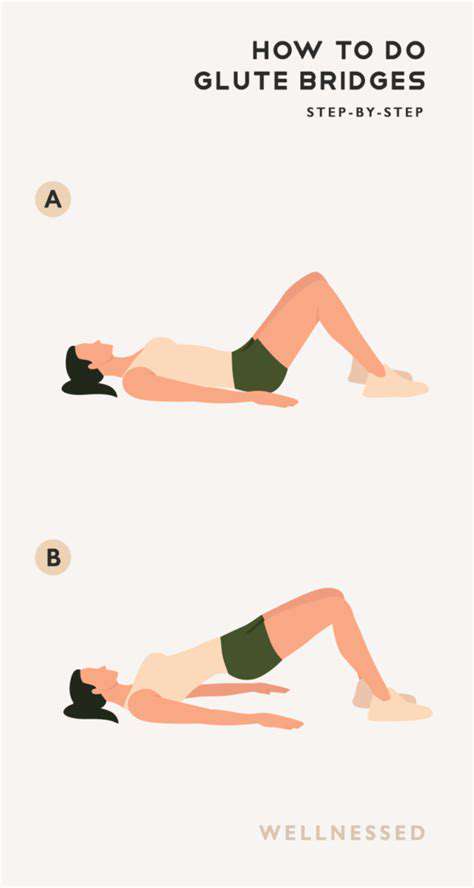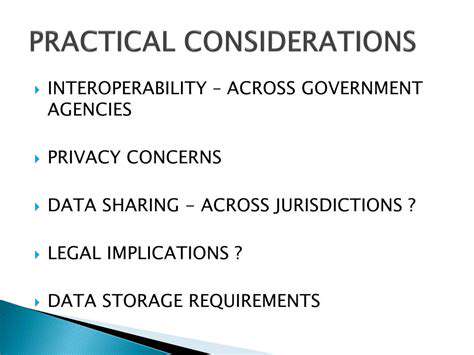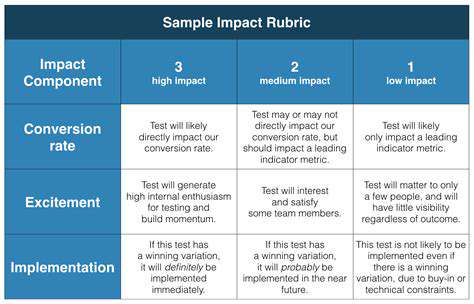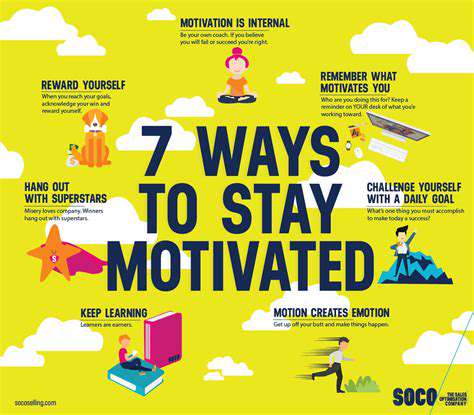Best Habits for Increased Energy Levels Naturally

Embrace Regular Physical Activity for Enhanced Energy
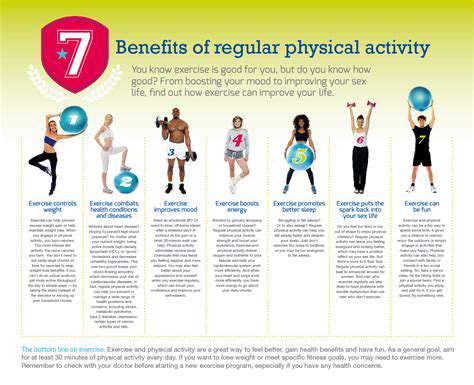
Benefits of Physical Activity
Engaging in regular physical activity offers a multitude of benefits, extending far beyond just physical well-being. A healthy lifestyle that incorporates exercise significantly boosts overall energy levels and reduces the risk of chronic diseases, like heart disease and type 2 diabetes. It can also positively impact mental health, fostering a sense of well-being and reducing the risk of depression and anxiety. Regular physical activity helps regulate mood swings and promotes feelings of relaxation.
Furthermore, incorporating physical activity into your daily routine can contribute to better sleep quality. A consistent exercise regimen can help you fall asleep faster and enjoy more restful sleep, which is crucial for maintaining optimal physical and mental function. Improved sleep quality, in turn, can further enhance your overall well-being and productivity throughout the day.
Choosing the Right Activities
There's a wide array of physical activities to choose from, catering to various interests and fitness levels. From brisk walking and jogging to swimming and cycling, finding an activity you enjoy is key to maintaining consistency. Consider your preferences, available resources, and any physical limitations when selecting activities. Choosing an activity you genuinely enjoy significantly increases the likelihood of sticking with it long-term.
Exploring different options, such as group fitness classes, team sports, or even simply engaging in gardening or housework, can broaden your horizons and discover new activities that spark your interest. This exploration helps in finding a sustainable and enjoyable way to incorporate regular physical activity into your routine.
Consistency and Progression
Consistency is paramount when it comes to reaping the full benefits of physical activity. Establishing a regular schedule and sticking to it, even if it's just for a short period initially, sets the stage for long-term success. Gradually increasing the intensity and duration of your workouts can lead to substantial improvements in fitness levels over time. It's crucial to listen to your body and avoid overexertion, especially when starting a new routine. Remember to gradually increase the intensity and duration of your workouts to prevent injuries and ensure sustainable progress.
Tracking your progress, whether through a fitness app or a simple journal, can provide valuable insights and motivation. Celebrating milestones, no matter how small, can further reinforce positive habits and encourage continued dedication to your fitness goals. Consistency and gradual progression are essential for achieving long-term health benefits and maintaining a healthy lifestyle.
Incorporate Mindfulness and Self-Care Practices
Mindfulness for a Calmer You
Incorporating mindfulness practices into your daily routine can significantly reduce stress and anxiety, leading to a greater sense of calm and well-being. Mindfulness isn't about eliminating stress entirely; it's about learning to observe and manage it effectively. This involves paying attention to the present moment without judgment, focusing on your breath, and acknowledging your thoughts and feelings as they arise without getting swept away by them. Simple exercises like mindful breathing or a few minutes of quiet reflection can make a substantial difference in your overall mood and energy levels.
Practicing mindfulness can also help you become more aware of your physical sensations. This awareness can help you identify and address physical tension or discomfort that might be contributing to fatigue or low energy. By becoming more attuned to your body's needs, you can make healthier choices that support your overall well-being and energy levels. This includes recognizing when you need rest, nourishment, or movement.
Nurturing Self-Compassion
Self-compassion is a crucial aspect of self-care. It involves treating yourself with the same kindness and understanding you would offer a friend facing a difficult situation. This means acknowledging your imperfections and challenges without harsh self-criticism. Practicing self-compassion can help you feel more connected to yourself, reduce self-doubt, and increase your overall resilience.
Often, self-criticism can drain your energy and motivation. By cultivating self-compassion, you create a supportive inner environment that fosters a healthier relationship with yourself. This, in turn, can lead to more positive self-perception and increased energy levels as you approach your daily tasks and challenges with a greater sense of self-worth and capability.
Prioritizing Sleep for Optimal Functioning
Adequate sleep is fundamental to maintaining energy levels and overall well-being. When you prioritize sleep, you allow your body and mind to fully recover from the day's activities, replenishing energy stores and promoting physical and mental restoration. This translates into increased focus, improved mood, and enhanced physical resilience.
Getting enough sleep isn't just about the quantity; it's also about the quality. Establishing a consistent sleep schedule, creating a relaxing bedtime routine, and ensuring a conducive sleep environment are crucial for achieving restorative sleep. The benefits of quality sleep extend far beyond energy levels; they positively impact cognitive function, emotional regulation, and physical health.
Nourishing Your Body with Healthy Foods
Fueling your body with nutritious foods is essential for maintaining energy levels. A balanced diet rich in fruits, vegetables, whole grains, and lean proteins provides your body with the necessary vitamins, minerals, and nutrients to function optimally. This fuels your body throughout the day, preventing energy crashes and promoting sustained energy levels.
Conversely, processed foods, sugary drinks, and excessive caffeine can lead to energy spikes followed by significant dips, leaving you feeling depleted and sluggish. Making conscious food choices can significantly impact your energy levels, helping you feel more focused, motivated, and capable throughout the day.
Engaging in Regular Physical Activity
Engaging in regular physical activity is a powerful way to boost energy levels and improve overall well-being. Exercise increases blood flow, delivering oxygen and nutrients to your cells, promoting energy production and reducing fatigue. Even moderate-intensity activities like brisk walking or cycling can significantly improve your energy levels.
Physical activity releases endorphins, natural mood boosters that combat feelings of stress and anxiety, further contributing to increased energy levels. Regular exercise also strengthens your cardiovascular system, improving endurance and stamina, allowing you to engage in daily activities with greater ease and vitality.
Creating a Supportive and Balanced Lifestyle
A supportive and balanced lifestyle is crucial for maintaining energy levels and well-being. This encompasses creating a supportive social network, engaging in hobbies and activities you enjoy, and setting boundaries to manage stress effectively. Surrounding yourself with positive influences and engaging in activities you find enjoyable can significantly impact your overall energy levels. This includes making time for activities that bring you joy and relaxation.
A balanced lifestyle also involves setting healthy boundaries, preventing burnout, and prioritizing self-care. This mindful approach to daily living creates a supportive environment for your physical and mental well-being, further contributing to sustained energy levels and a positive outlook on life.
Read more about Best Habits for Increased Energy Levels Naturally
Hot Recommendations
-
*Guide to Managing Gout Through Diet
-
*Best Habits for Financial Well being
-
*How to Build a Routine for Better Mental Health
-
*How to Eat Healthy on a Budget [Tips & Meal Ideas]
-
*Guide to Practicing Self Acceptance
-
*How to Incorporate More Movement Into Your Day
-
*Guide to Managing Chronic Pain Naturally
-
*Guide to Building a Reading Habit for Well being
-
*Top 5 Weight Loss Supplements That Actually Work
-
*Best Exercises for Postpartum Recovery [Beyond Abdominal Work]


